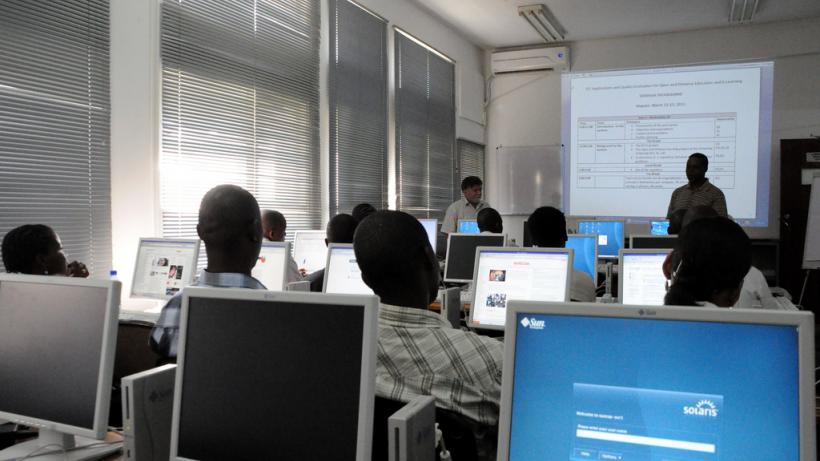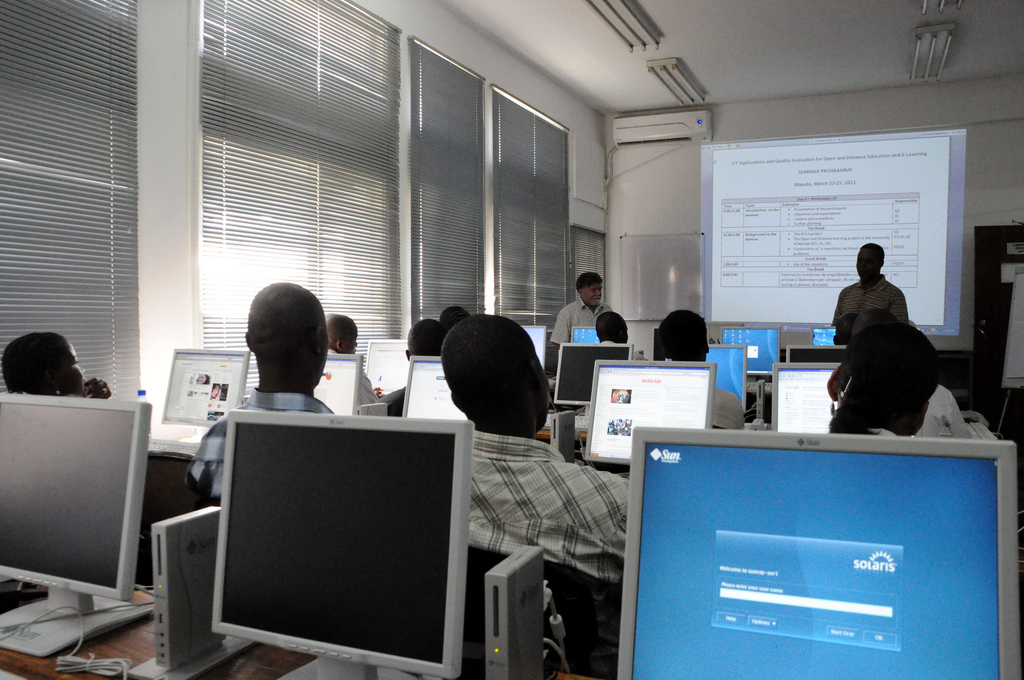
Want to become an entrepreneur in Mozambique? 3 things you need to know!
IGC Country Economists Novella and Jorrit share lessons from the IGC Private Sector Development Workshop held in Maputo on March 2016. With low levels of internet penetration, entrepreneurs must find innovative means of overcoming key barriers to building and growing businesses in challenging environments.
Imagine you are an entrepreneur who decides to start a business in Mozambique. While starting a business in any country can be complicated, there are a particular set of conditions in Mozambique which make it even more difficult. What type of challenges would you face? Firstly, if you're looking for someone local who speaks English and has a Masters degree or an MBA, it will be challenging for you to find such a candidate. Additionally, if you do find this candidate, she is likely to already be employed and will be looking for better opportunities and higher salary expectations. And finally, once she starts working for you she is still likely to be using online job search tools to be looking for better job opportunities. At the same time with 5.9% internet penetration, Mozambique is not a country where you can rely only on online job portals, especially if your aim is to build greater capacity among the local labour force.
Entrepreneurs participating in the IGC Private Sector Development Workshop[1] held in Maputo in March 2016, spoke to researchers and policymakers, and helped us understand why the above situation was so challenging in Mozambique. Three main lessons were drawn:
#1 Skills are relevant in virtually every part of the economy.
One may suspect that the importance of skills in determining firm performance would be largest in those segments of the economy relying most on highly-skilled labour. To the contrary, preliminary findings from a research project studying micro-entrepreneurs in the suburbs of Maputo (presented at the workshop by Pedro Vicente) show that even a relatively simple financial literacy module increased sales for ‘low-skilled micro-entrepreneurs´ by an impressive 64%. The micro-entrepreneurs in the sample included retailers but also shoemakers, seamstresses, tailors and hairdressers. The financial literacy training focused on explaining the benefits of saving and investing, while also introducing simple accounting procedures and a logbook.
Another challenge for our initial entrepreneur could be finding a good manager or a financial executive for her own firm. The good news for our entrepreneur is that Mozambican financial executives in the KPMG Top 100 Companies are on par with US Top 100 company managers, according to preliminary findings from IGC project by Claudia Custodio. However, while Internal Rate of Return and Net Present Value are the most preferred techniques for project selection and corporate budget forecasting in the US, Mozambican managers use a wider array of techniques. In terms of capital cost estimation, the standard CAPM (Capital Asset Pricing Model), which is by far the most used technique in the US (74%) is used must less by Mozambican managers (21%). In both cases, the difference may have to do with managers´ need to adapt to the local context. For instance, patchier data may require Mozambican managers to avoid relying on just one technique, and instead relying on a combination of techniques.
#2 New technologies may enhance inequalities or have an equalising effect, depending on the context.
Internet penetration is still very low (5.9%) in Mozambique. However, it has been shown by various studies that job portals can improve the efficiency of the labour market, by reducing search costs and aggregating scale, which leads to better matches for both employers and employees. As a consequence, there would be great benefits to our entrepreneur if she could access a wider segment of the labour supply by simply posting her vacancy on an internet job portal. However, if our entrepreneur decides to recruit using emprego.co.mz, one of the most famous job portals in Mozambique, Pedro Martins' study shows that she is likely to find an audience where 1) registered users are, on average, relatively young (aged 25) and have an average schooling attainment of 13.4 years and 2) 70% of those looking for a job are already employed, implying they are looking for better jobs. What about the 22.6% of the population that is currently officially unemployed? Internet job portals may not the best way to reach them, it appears, or at least not yet!
 Training workshop in Maputo, Mozambique
Training workshop in Maputo, Mozambique
Image credit: Paul Scott
In any case, new technologies can also play an equalising role. Previous work by the IGC in Mozambique clearly pointed to the important role that new technologies can play at the household level. A Study by Pedro Vicente found that access to mobile banking for rural families in Southern Mozambique increased the likelihood of receiving remittances from family members working in the capital, and significantly improved resilience to adverse shocks. Preliminary findings on micro-entrepreneurs find that the positive effect of the financial literacy training can be further boosted by the simultaneous introduction of a mobile savings account.
#3 Collaboration between the public and private sector can lead to large rewards for both.
Today, our entrepreneur would not be able to gather Mozambican labour market information easily or rapidly. Luckily for her, the recent creation of the National Observatory of the Labour Market by the Mozambican Ministry of Labour should improve the situation in the next few years. The information gathered and analysed by this new department should identify mismatches in the labour market and inform policy on various fronts. It could inform a fine-tuning of secondary school curricula, decisions on which types of vocational training to promote and invest in, and what types of career guidance to provide to students and graduates.
In developing countries, gathering reliable labour market data is never easy. Pedro Martins' study suggests public-private partnerships could be promising avenues for data collection. His preliminary findings from the jobs portal points at skills mismatches – more than 50% of graduates applied to non-graduate jobs. Furthermore, analysing vacancies by type suggest that non-technical jobs attract more interest from job-seekers than technical positions. Even if the data are not representative of the entire economy, it is this kind of information that is important for governments to generate. The new Observatory of the Labour Market will need a range of different data sources to be able to construct a good picture of the labour market, but private jobs portals could definitely count among them.
Next steps
Labour is a critical piece of the puzzle for achieving structural economic transformation in African countries. With some luck - and probably in few years- our entrepreneur will enjoy the benefits of these three lessons learned, seeing them reflected in policy changes for the Mozambican economy.
[1] On March 24th, researchers, policy makers, and representatives of the private sector gathered at Hotel Avenida in Maputo to discuss how to foster private sector development in Mozambique from a labour market perspective. Held in collaboration with the Mozambican Ministry of Economics and Finance, the workshop focused on the skills of workers, managers and micro-entrepreneurs. All workshop materials are available here.

